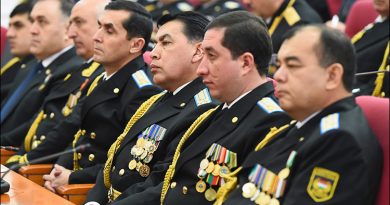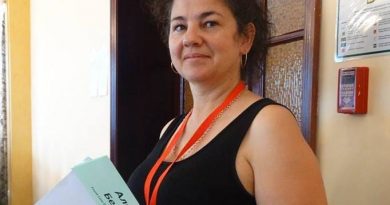Kazakhstan: authorities violated citizens’ rights during a state of emergency
The Kazakh authorities grossly violated the Constitution and the right of citizens to receive reliable information, as well as retroactively substituted and corrected the decisions of sanitary doctors during the state of emergency in the country. Such conclusions are contained in the study “Freedom of speech and state of emergency”, conducted by the Kazakhstani international foundation for the protection of freedom of speech “Adil soz”.
The study covers the period from March to July 2020. As the author of the study, Igor Loskutov, notes, during the state of emergency there were numerous violations of the law by the authorities.
For example, the decisions of sanitary doctors did not go through the procedures of official approval, publication and were put into effect immediately after signing.
“Thus, Article 18 of the Constitution of the Republic of Kazakhstan was grossly violated, which obliges state bodies to provide a citizen with the opportunity to familiarize himself with the regulatory legal acts affecting his rights. Also, there were recorded cases of replacement, substitution, and correction of the texts of orders of sanitary doctors retroactively, ”the study notes.
As for freedom of speech, according to Loskutov, even though during the emergency, media workers were allowed to move around the territory of cities and regions (for the rest of the population there was a ban on free movement – they were only allowed to visit nearby shops and pharmacies), journalists were not able to carry out their activities in full. Additional obstacles were created in the form of the requirement to have editorial tasks, a certificate from the place of work, official certificates, and permits to travel by personal transport. Thus, the study says, bloggers and citizen journalists who do not work in the official media were significantly restricted in their rights.
Also, a decree of the Chief State Sanitary Doctor of Kazakhstan introduced a ban on audio, photo, and video filming in health care organizations, ambulances, in premises designated by local executive bodies for quarantine, as well as during the provision of medical care at home by medical workers, conducting an epidemiological investigation in the outbreak, conducting a questioning of patients and people who contacted with patients.
“This rule also significantly limited the ability of journalists to bring audiovisual information on coronavirus to the public. In general, we can say that under the state of emergency, the freedom of expression, receipt, and spreading of information was unjustifiably limited, ”the study notes.
As for the numbers, according to Adil Soz, in April there were 4 cases of arrests of journalists, bloggers, and civil activists, 13 pre-trial investigations on criminal charges of disseminating deliberately false information, 23 administrative proceedings in pre-trial and judicial order, of which 14 – against journalists, bloggers and civil society activists. In May, when parliamentary deputies discussed the bills on rallies and decriminalization of libel, which were criticized from the very beginning by human rights defenders, neither civil activists, nor non-governmental organizations, nor other experts were involved in the discussion of the norms of these bills, since various restrictions were in effect due to the state of emergency
Besides, due to the state of emergency, journalists’ opportunities to take part in court hearings were limited. The consideration of cases due to the coronavirus was transferred to the online format, but journalists were denied access to these meetings.
Another problem, as “Adil Soz” reminds, is that journalists and bloggers talking about the situation with the coronavirus have been accused of disseminating deliberately false information during an emergency.
In June, preliminary figures on the situation with the media became known. So, it turned out that due to the pandemic, the forecast of losses of advertising revenues for the media this year will average from 30% to 60%, which threatens the existence of the lion’s share of Kazakhstani media.
“Kazakh mass media have faced new challenges amid the pandemic. Journalists from different regions talk about financial problems, advertisers have suspended contracts, some newspaper editions have stopped printing or reduced circulation and issues, there is not enough money for salaries, “the report for June says.
In July, quarantine restrictions in the country continued, which also affected media workers. In general, according to the fund, during the period of the introduction of the state of emergency and quarantine regime in the country, 87 pre-trial investigations were registered on the facts of the spread of knowingly false information about coronavirus infection. Fifty-five criminal cases were closed for lack of corpus delicti.




